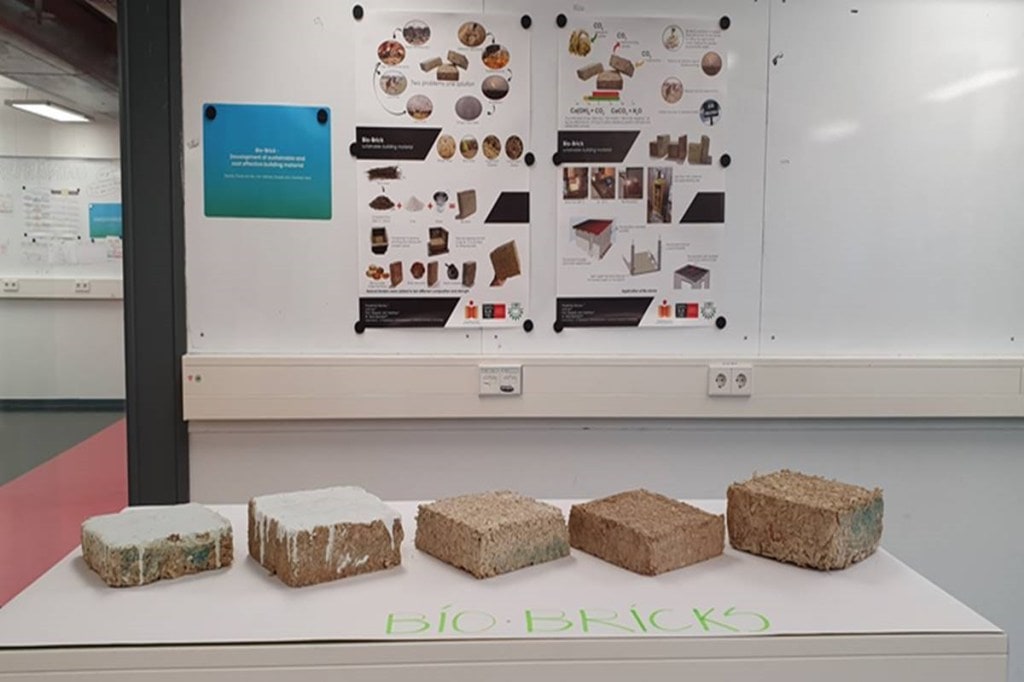A new development by researchers at the Indian Institute of Technology (IIT), Hyderabad, could bring cost-effective living solutions in the country.
The central institute recently inaugurated the country’s first building made completely of bio-bricks from agricultural waste. IIT, Hyderabad, Director B.S. Murthy called it a perfect illustration of wealth from waste and said the institute would submit to the Ministry of Agriculture a proposal to promote its wider application in rural communities.
The researchers provided a demonstration on how agricultural waste can be used to create sustainable materials. These materials can then be used to construct cost-effective and eco-friendly structures. The team already secured a patent for its bio-brick material and technology in April, The Indian Express reported.
Research scholar Priyabrata Rautray developed the technology under the supervision of Department of Design Professor Deepak John Mathew.
Professor Mathew said the innovation would be a game-changer for rural farmers, who can use the agricultural waste to generate income. This will also provide them employment during lean periods.
Post-harvest agro-waste burning is a major cause of India’s air pollution. The researchers developed the bio-brick technology to counter stubble burning.
The institute said in a release that not only were these bio-bricks economical, but also 1/8 and 1/10 of the weight for burnt clay bricks and concrete blocks, respectively, of similar volume. Bio-bricks will also be cheaper, costing Rs 2-3 when mass-produced. Farmers can make the bio-brick material on site to further cut labour cost. Bio-bricks manufacture would also help marginal farmers generate income and create new employment during the off-seasons.
The researchers said the material exhibited good thermal insulation and fire-resistant properties. It can reduce temperatures by 5-6 degrees when used in wall panelling and roofing. They also found that the huge ago-waste generation amid high demand for regular bricks led to higher air pollution and loss of fertile topsoil.
Rautray said he hoped villagers and farmers adopted the technology in their homes.
IIT, Hyderabad, also designed and built a guard cabin using the bio-bricks as part of the Bold Unique Idea Lead Development (BUILD) project to demonstrate the material’s versatility and strength. The building is supported by a metal frame, while the roof structure has PVC sheets below the bio-bricks to reduce heat. The walls are plastered with cement to provide protection from rain.
